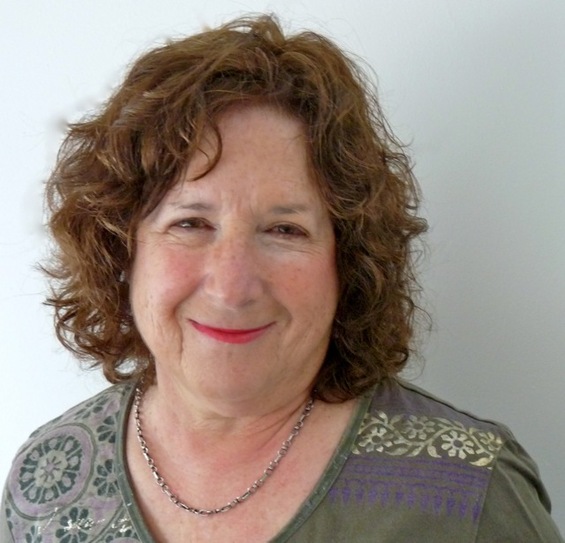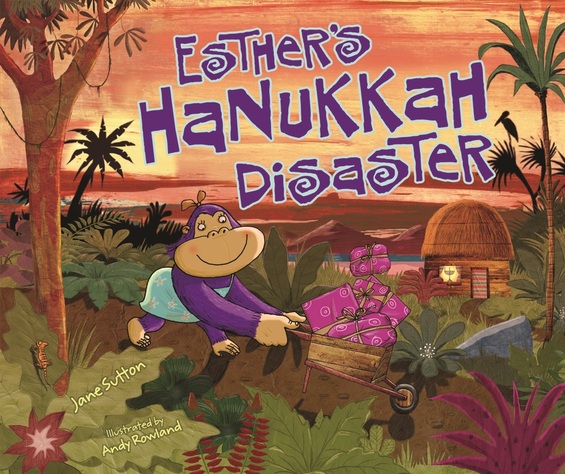I was lucky enough to receive the charming book “Don’t Call Me Sidney” when my daughter, Lilli, was first born. So you can imagine how excited I was to find out that the author, Jane Sutton, is local, and, better yet, has a new book out just in time for Hanukkah. Jane and I chatted about “Esther’s Hanukkah Disaster” and the challenges of writing for young children.
Tell me about “Esther’s Hanukkah Disaster.”

Your books for young children all seem to feature animals with quirky names as the protagonists. Do you have a favorite animal protagonist? And do you have a favorite animal?
You’re right! I do like quirky names. My favorite animal protagonist is currently Esther, the sweet purple gorilla in my newest book. But my favorite animal is the elephant. I have an extensive collection of elephants—figurines made of all kinds of materials, stuffed ones, mobiles, lawn ornaments, you name it.
I’ve noticed you write for both young children and middle-schoolers. Is one group easier to write for?

It’s been a long time, but I realized I’ve actually read “Me and the Weirdos.” I certainly don’t want to put you on the spot, but is there any chance it was inspired by your own family?
Ah, “Me and the Weirdos.” I had so much fun writing that middle-grade novel about a girl who attempts to “unweird” her family. It was quite successful too—it was an ALA/CBC Children’s Choice, won the Utah Children’s Book Award, was translated into French and sold something like 90,000 copies.
But I’m evading your question. The traits of the Krinkle family are not based on my family—I exaggerated their eccentricities to make them funnier. My father did not, for example, ride a bike with a built-in umbrella while singing opera off-key. My sister did not bring her lunch to school in air-sickness bags. However, I do think the experience of being embarrassed by one’s family is universal; my own parents displayed cringe-inducing behavior at times. And I know for sure that my children have been embarrassed many times by their mom!


